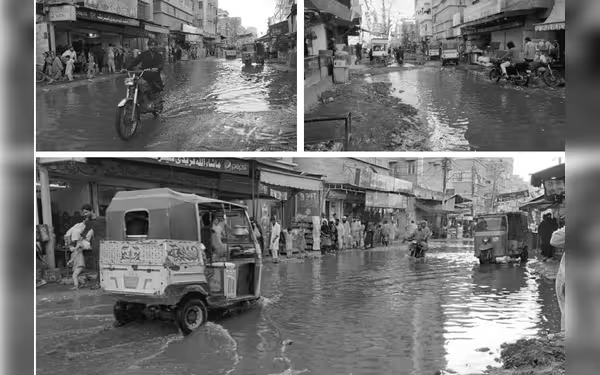Saturday, November 16, 2024 11:35 PM
Liaquatabad Faces Sewage Crisis Amid Rapid Urbanization
- Liaquatabad's sewerage system is overwhelmed by unplanned construction.
- Residents face health risks due to stagnant sewage.
- Local government slow to address the sewage crisis.
 Image Credits: tribune.com.pk
Image Credits: tribune.com.pkLiaquatabad is grappling with a sewage crisis due to rapid urbanization and unplanned construction, posing health risks to residents.
Liaquatabad, a bustling locality in Pakistan, is facing a severe crisis that has turned it into a "stinking cesspool of sewage." The rapid growth of the area, coupled with unchecked construction of multi-storey buildings, has placed immense pressure on its already struggling sewerage system. This situation has led to a near collapse of the infrastructure that is supposed to manage waste and keep the environment clean.
As the population of Liaquatabad continues to rise, the demand for housing has skyrocketed. Builders, eager to meet this demand, have constructed numerous high-rise buildings without proper planning or consideration for the existing sewerage facilities. Former councillor and social leader, Sana Fayyaz, has voiced her concerns, stating that "the unplanned construction of multi-storey buildings has overwhelmed the existing sewerage system." This lack of foresight has resulted in overflowing drains and a foul smell that permeates the air, making life uncomfortable for residents.
The consequences of this negligence are dire. Not only does the sewage overflow create an unsightly mess, but it also poses serious health risks to the community. Stagnant water can become a breeding ground for mosquitoes and other pests, leading to the spread of diseases. Residents are left to navigate through these unsanitary conditions, which can lead to frustration and despair.
Moreover, the local government has been slow to respond to the crisis. Many residents feel abandoned, as their pleas for help seem to fall on deaf ears. The situation calls for immediate action, including the development of a comprehensive plan to upgrade the sewerage system and regulate construction activities in the area. Without such measures, Liaquatabad risks becoming a permanent example of how rapid urbanization can lead to environmental degradation.
The plight of Liaquatabad serves as a stark reminder of the importance of urban planning and infrastructure development. As cities grow, it is crucial to ensure that essential services, like sewerage systems, keep pace with the demands of the population. Only through careful planning and community involvement can we hope to restore Liaquatabad to a clean and healthy environment for all its residents.













